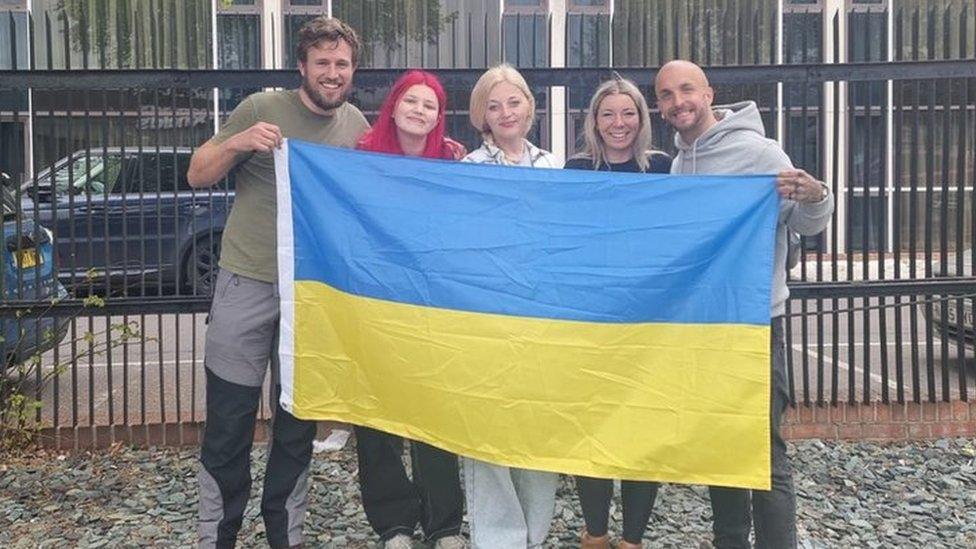Ukraine refugees: UK set to admit lone teenagers after rule change
- Published
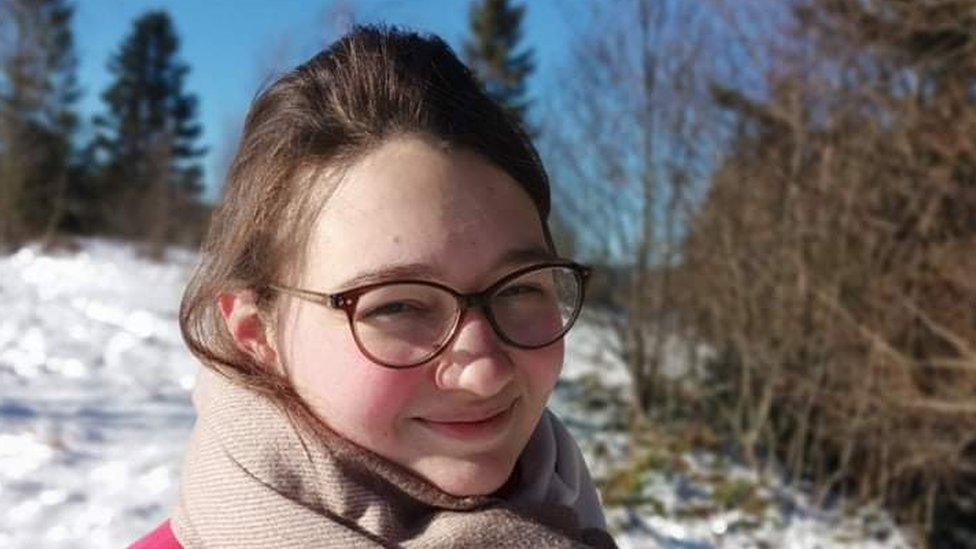
Valya's visa has been approved, months after she first applied to come to the UK
Teenagers who fled the war in Ukraine will be allowed to come to the UK alone under new rules, the BBC understands.
About 1,000 unaccompanied minors had previously been left in limbo because the Homes for Ukraine scheme required young people to travel with a guardian.
One 17-year-old, Valya, spent months alone in a single room in central Ukraine with air raids overhead.
Valya, who is on her way to the UK, said her parents would be happy she is now safe.
She left her family home in Khershon in southern Ukraine, where there has been heavy fighting, in the hope she could travel to the UK and live with a sponsor family in the Midlands.
Like hundreds of other Ukrainian teenagers, she had applied under the Homes for Ukraine scheme, which for weeks made no mention of restrictions on under-18s travelling alone.
But she was told her visa had been blocked when the Home Office changed its guidance to say that under-18s must be travelling with a parent or guardian, or reuniting with them in the UK.

Watch Somewhere Safe: Alina's Story on iPlayer.

It was too dangerous for Valya to rejoin her family, so she was left alone in an area which has seen regular air raids - while her mental and physical health worsened.
Her lawyers had argued that she had applied in good faith before the guidance was changed, and she should have been granted a visa.
Now, ahead of an expected rule change on Wednesday which will allow more unaccompanied teenagers to come to the UK, Valya has been granted a visa and is heading to stay with her sponsors.
"I'm happy that my parents could know I'm safe, because it was very hard for them not to know," she said.
The rule change is due to benefit only those unaccompanied minors who are already in the system.
Because of safeguarding concerns, their sponsors in the UK will need to either be a relative or known to their parents, such as a close family friend.
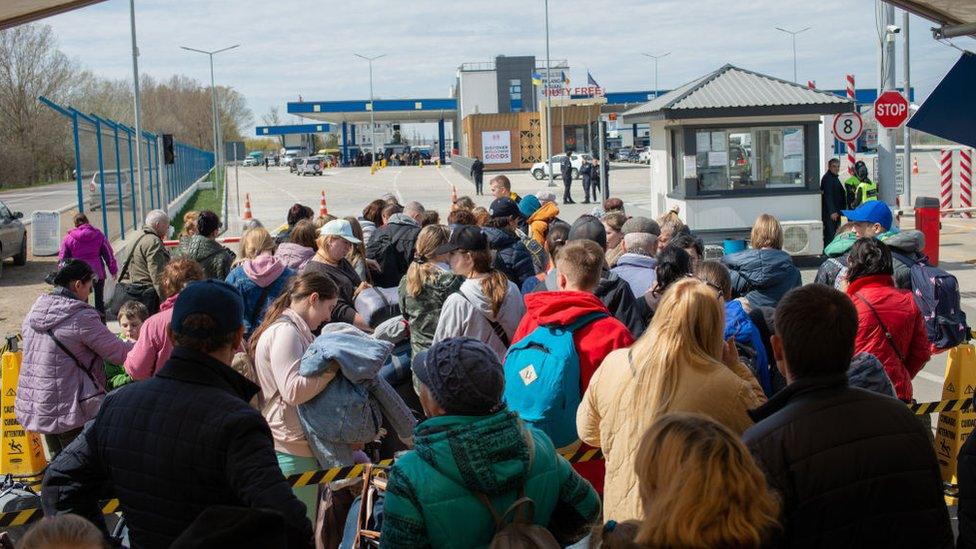
Hundreds of unaccompanied teenagers applied to the UK as they fled the war in Ukraine
In exceptional circumstances the minors may be able to stay with a family they have been matched with, but they would need approval from the government and local authority after enhanced safety checks.
It is thought teenagers are more likely to be successful in applying through this route as they need less support than children.
Lord Alf Dubs, who escaped the Nazis as a child and has campaigned for young refugees, said he was "very emotional" to hear Valya was on her way to safety.
"It shouldn't have been so long. She shouldn't have had to wait. There shouldn't have been the uncertainty, but I'm delighted it's happening," he said.
"I'm also concerned that the Home Office are treating her as an exception."
A government spokesman said they were exploring whether the Homes for Ukraine scheme could safely be opened up to more children.
"We have a responsibility to keep children safe and, as the public rightly expect, we have put robust processes in place to protect them once they arrive in the country," the spokesman said.
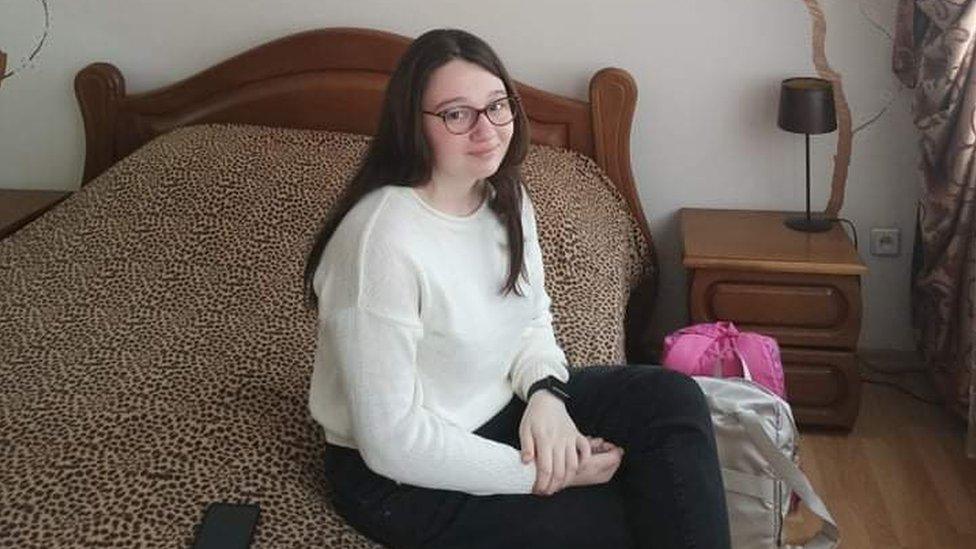
Air raids have been a regular occurrence where Valya has been staying alone in Ukraine
Enver Solomon, chief executive of the Refugee Council, said the announcement was "vitally important".
But he said: "It is essential children's best interests are properly understood by all those involved in every placement, and at every stage of the process."
In the Midlands, teachers Rhian and Sam Chillcott are getting ready to finally welcome Valya to the room they have had prepared for months.
Rhian said she felt they had been battling red tape throughout the process.
"Every morning you wake up with that knot of excitement thinking today's the day, and every day you go to bed dejected," she said.
"But, you know, today really is the day. And I'm not going to go to bed dejected tonight."
Additional reporting by Joseph Lee

AN APPLE A DAY: How the humble apple can help you live longer
FOOD ADDICTION: Ultra-processed food and the global obesity pandemic

Related topics
- Published4 July 2022
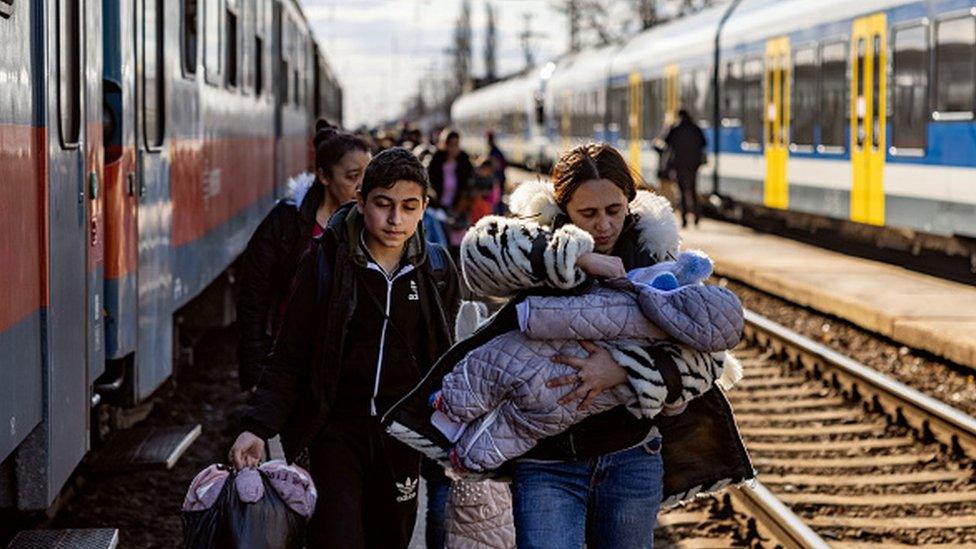
- Published17 June 2022
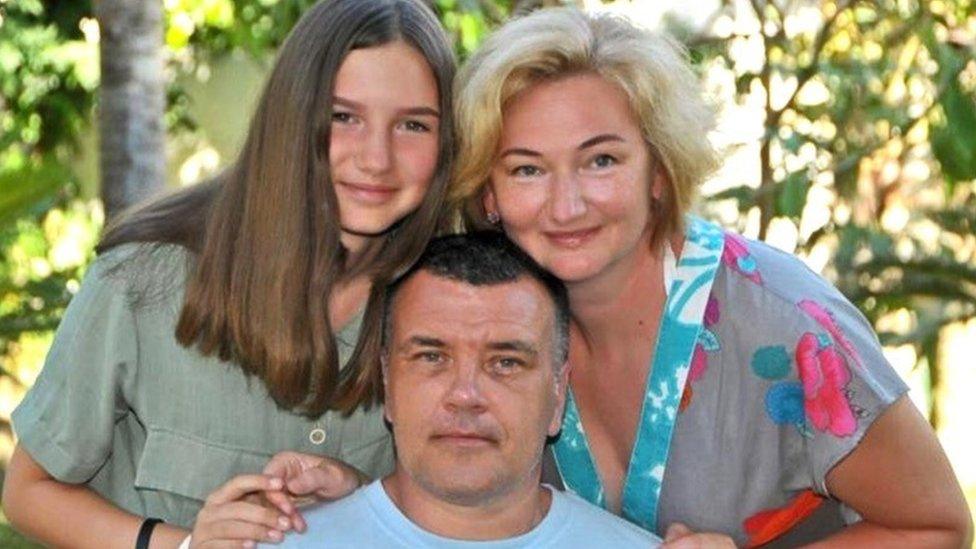
- Published21 July 2022
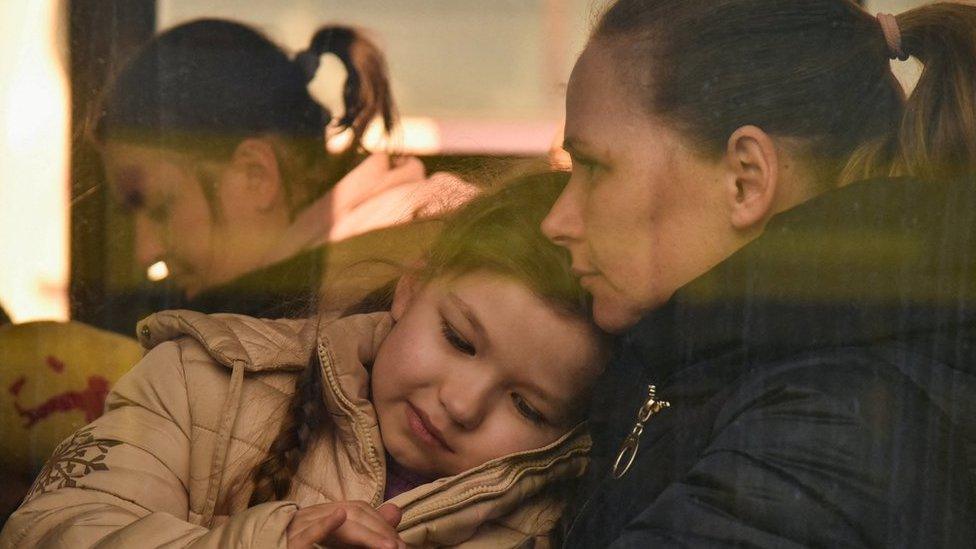
- Published28 May 2022
